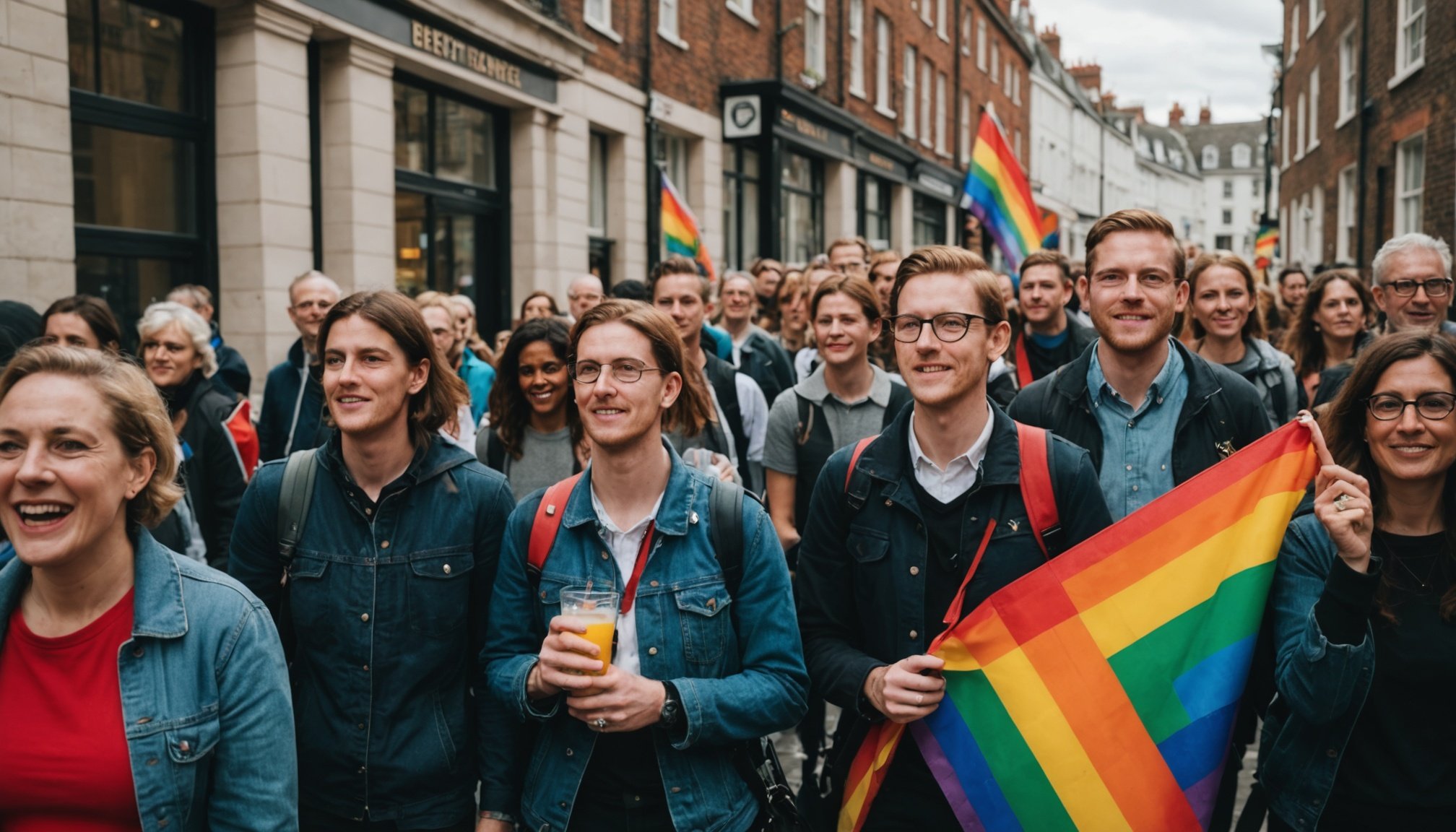Navigating the healthcare system can be challenging for anyone, but for the LGBTQ+ community in the UK, these challenges can be particularly pronounced. From issues surrounding mental health to accessing inclusive healthcare services, LGBTQ+ individuals often face unique barriers that can impact their overall well-being. Despite increased social acceptance, there remains a significant gap in healthcare provision for this diverse group. This article delves into the specific health challenges faced by LGBTQ+ people, exploring the systemic issues and offering insights into potential solutions.
Mental Health Concerns in the LGBTQ+ Community
Mental health is a critical aspect of overall well-being, yet for many in the LGBTQ+ community, accessing appropriate support remains a complex issue. Individuals identifying as lesbian, gay, bisexual, transgender, or queer often encounter higher rates of mental health concerns like anxiety, depression, and even suicidal ideation compared to their heterosexual counterparts. This disparity is not a reflection of their identity but rather the societal pressures and discrimination they face.
This might interest you : How does mental health stigma persist in UK society, and what can be done to reduce it?
Stigma and Discrimination
Despite progress towards equality, stigma and prejudice persist, affecting the mental health of LGBTQ+ individuals. The fear of coming out, rejection from family or friends, and experiencing bullying or harassment are significant stressors. These experiences can lead to chronic stress, eventually impacting mental health if left unaddressed.
Lack of Support and Understanding
Many LGBTQ+ individuals feel that mental health services do not adequately cater to their specific needs. A lack of understanding from healthcare professionals can result in misdiagnosis or improper treatment, leaving many feeling alienated from the very services designed to help them.
Also to discover : What preventative screenings should UK adults prioritize based on age and gender?
Access to LGBTQ+ Affirmative Therapy
While there are specialists trained in addressing LGBTQ+ mental health issues, access to these services can be limited. Long waiting times, location barriers, and financial constraints often prevent individuals from receiving the care they need. Increasing the availability of LGBTQ+ affirmative therapy could significantly improve mental health outcomes in this community.
Barriers to Inclusive Healthcare Services
In the UK, healthcare services are expected to be inclusive and accessible to all. However, for LGBTQ+ individuals, navigating this system can be fraught with challenges. These barriers not only affect the quality of care received but also the willingness of people to seek necessary medical attention.
Misunderstanding and Assumptions
Healthcare professionals may lack the training to appropriately care for LGBTQ+ patients, leading to assumptions about sexual orientation or gender identity. This can result in inadequate care or even unintended discrimination within healthcare settings.
Limited Access to Gender-Affirming Care
Transgender individuals, in particular, often face significant challenges when seeking gender-affirming care. Long waiting lists for hormone therapy, surgery, and other transition-related services can delay critical aspects of their healthcare journey.
Health Risks and Preventative Care
LGBTQ+ individuals may also be at higher risk for certain health conditions, such as HIV or other sexually transmitted infections (STIs). Despite this, targeted education and preventative care are sometimes lacking, leaving individuals without the necessary resources to protect themselves.
Improving Healthcare Access
To address these barriers, it is crucial to integrate LGBTQ+ health education into medical training. This would equip healthcare providers with the knowledge needed to offer respectful, informed care that acknowledges the unique needs of LGBTQ+ patients.
Sexual Health and Risk Factors
Sexual health is a vital component of overall well-being, and for the LGBTQ+ community, it involves distinct considerations that necessitate tailored approaches. Understanding these unique risk factors is essential to ensuring that all individuals can lead healthy, fulfilling lives.
Disproportionate Risks
Certain segments of the LGBTQ+ population face disproportionate risks related to sexual health. For instance, gay and bisexual men may be at a higher risk for contracting HIV. Without adequate education and resources, these individuals may not have the tools they need to protect themselves.
Education and Awareness
In many cases, LGBTQ+ individuals may lack access to comprehensive sexual health education that addresses their specific needs. Standard educational programs often focus on heterosexual relationships, leaving gaps in knowledge for those who do not identify with mainstream narratives.
Access to Preventative Measures
Preventative measures, such as PrEP (pre-exposure prophylaxis) and regular STI screenings, are critical tools in managing sexual health risks. However, access to these resources can be limited by financial constraints or geographical barriers, underscoring the need for more inclusive public health strategies.
Community Support and Resources
Strengthening community support networks can be instrumental in promoting better sexual health. By fostering environments where LGBTQ+ individuals feel safe to discuss and learn about sexual health, we can empower them to make informed decisions regarding their bodies and relationships.
Social Support and Community Resilience
Social support systems play a pivotal role in the health and well-being of LGBTQ+ individuals. Community resilience is a crucial aspect that enables this group to navigate the challenges posed by societal norms and discrimination. By understanding the significance of social support, we can better appreciate its impact on mental, physical, and emotional health.
Building a Supportive Network
For many LGBTQ+ people, finding a supportive community can be life-changing. Whether through friends, family, or local organizations, having a network to turn to can alleviate the sense of isolation and fear that many experience.
Role of LGBTQ+ Organizations
Organizations focused on LGBTQ+ issues offer invaluable resources, from advocacy and education to direct support services. These groups are often at the forefront of pushing for policy changes that promote inclusivity and equality in healthcare.
Fostering Resilience
Community resilience is not just about surviving but thriving. By creating safe spaces and fostering a culture of acceptance, LGBTQ+ communities can build resilience against societal pressures, improving overall health outcomes.
Encouraging Allies and Advocacy
Allies play a crucial role in supporting LGBTQ+ individuals. Through advocacy and active allyship, changes can be made to dismantle institutional barriers and promote a more inclusive society. Encouraging others to stand with the LGBTQ+ community can help raise awareness and drive positive change.
The health challenges faced by the LGBTQ+ community in the UK are multifaceted, rooted in both societal attitudes and systemic barriers within the healthcare system. Addressing these issues requires a comprehensive approach that combines education, policy changes, and increased visibility for LGBTQ+ voices within the health sector.
To ensure equitable healthcare for all, it is imperative that healthcare providers receive adequate training to meet the unique needs of LGBTQ+ individuals. Additionally, fostering community support and resilience can empower individuals to advocate for their health and well-being.
As we move towards a more inclusive future, understanding and addressing the challenges faced by LGBTQ+ people is crucial. By doing so, we can work towards a society where everyone, regardless of their sexual orientation or gender identity, has access to the care and support they deserve.











